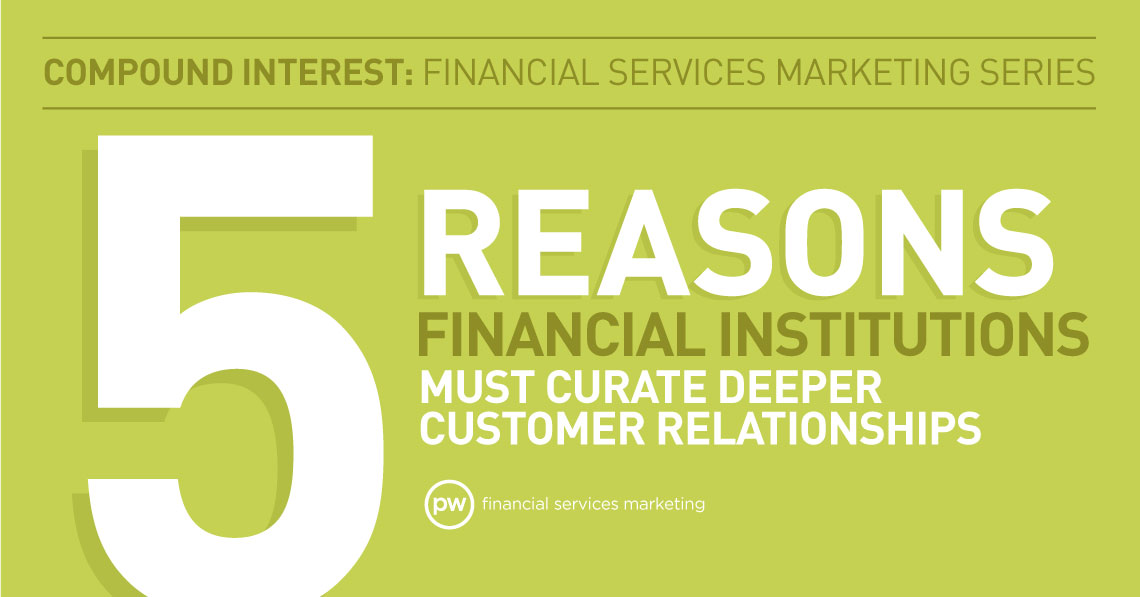1. Building Trust Is Essential for Growth and Retention
Financial institutions of all types understand the importance of trust. Without it, you won’t be successful in retaining existing customers, and it will be difficult to lure in new money without a trustworthy reputation. But the mindset that you will build trust by simply doing what you’re supposed to do most of the time isn’t proactive enough of an approach. Many customers tend to only take notice of how trustworthy an institution is when it comes to how an issue they have is handled. The problem is that by this point, some customers or members may already have a bad taste in their mouth due to the issue, or worse yet, some customers may decide to leave before bringing the issue to your full attention. A commonly cited TARP study conducted by John Goodman dating back to 1999 found that 4% of customers who are “wronged” by a company will complain, while the other 96% simply quit using the company’s products or services. A well-constructed feedback loop is essential for not only optimizing your operations but also showing your customers how much they matter. Regular collection of customer sentiments and pain points will help you identify problems and opportunities and get ahead of them.
2. Ambassadors Need To Feel Heard
Some brands make the mistake of believing that ambassadors are simply users that had great experiences with their product. The truth is that not only is the ultra-loyalty displayed from this group the result of a great holistic experience with the brand’s product, service and convenience tools – but it is also the product of feeling important to the brand. When an individual believes their voice was heard, they not only appreciate that their problem or request was addressed, but they can actually feel as though they helped consult the brand on the matter. While it may not feel natural for many organizations to let their customers feel like they led them to water, this mindset on the part of the customer can build pride within them and make them feel trusted. If a customer brings a need or issue to your attention, you don’t want them to feel like you begrudgingly took care of it for them or even just simply took care of it. You want them to feel like their time in coming to you with the issue is greatly appreciated and that the result isn’t just you taking care of them but you are optimizing your business around their feedback in a manner that’s mutually beneficial. This trust will then be reciprocated, and a deep relationship can be built from it. The next thing you know, you have an ambassador who is beating your drum for you, not just because of what you’ve done for them, but because they also have a sense of importance as it pertains to your brand.
3. Your Values Need To Be Brought To Light
For many financial institutions, connecting with younger generations is an essential part of their growth plan. Values are one of the most important factors in brand loyalty among millennials and Gen Z. Counting on this audience to learn your values by coming into your branches, visiting the “About Us” page of your website or reading your latest press release about a nonprofit you support isn’t going to do the job. Developing as many touchpoints as possible to weave in messaging about your values is key. Monitor how these age groups are engaging with your brand and ensure that your values are omnipresent in those channels. For channels that allow for easy audience segmentation (such as e-newsletters), you may even consider tailoring messaging for younger generations to amplify your values to these audiences.
4. Customer Trust Is Your Insurance Against Inevitable Issues
Customer demand is driving adoption of more tech solutions in the financial space. On one hand, organizations have to adhere to this in order to meet customer demand. On the other hand, it’s inevitable that you will run into a few snafus along the way. It may be as simple as a customer having to log in more than once during a session on a new app you launch, but these things will happen, and when customers run into annoyances while using a technology that’s supposed to make their life easier, it will frustrate them.
5. Word of Mouth Is a Powerful Force
We already hit on the importance of trust when it comes to both acquiring and retaining new customers, but another key thing to keep in mind is that it’s important for the medium to match the message. Certain mediums are considered more trustworthy than others, and for the trust message to fully resonate, it needs to not only be a powerful message but also be conveyed in a means that the audience trusts. No matter how persuasive your marketing is, most of your audience will still put more credence in the experiences with your brand of their friends and family members. This explains the importance of not only cultivating trust with your current customers but also giving them a sense of pride that their voice helped optimize your processes. This will make them into ambassadors of your brand, and their word will be far more persuasive to people close to them than your paid marketing efforts. This doesn’t mean that marketing shouldn’t have a place in the equation though. Tactics such as customer testimonial advertising can allow for marketing to amplify the voice of their customers. This allows brands to not just benefit from a current customer’s good experience with that customer’s direct network but to also package that customer’s experience and share it with a target audience that you control. Financial institutions can both build trust and drive growth by running ads that highlight a customer’s good experience with their brand and packaging it with an appealing offer.
Questions?
If you have questions or would like to discuss improving or better measuring your financial institution’s customer relations, feel free to contact us here or give us a call at 502-499-4209 to get some time on Jonathan Bone’s schedule.
About the Author
Jonathan Bone is Partner and Senior Vice President at PriceWeber. He is the Account Director in charge of PW Financial Services and oversees all work with Financial Services clients.


